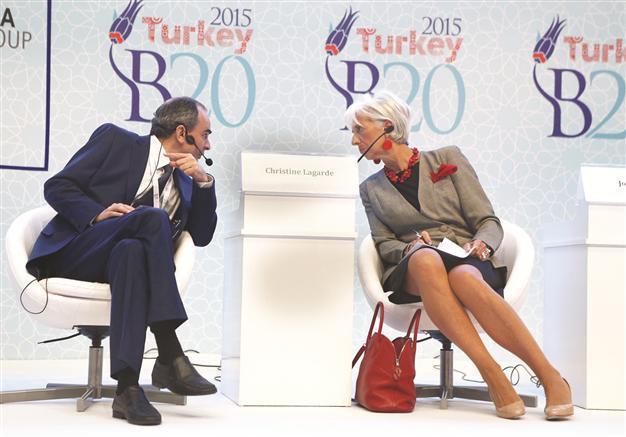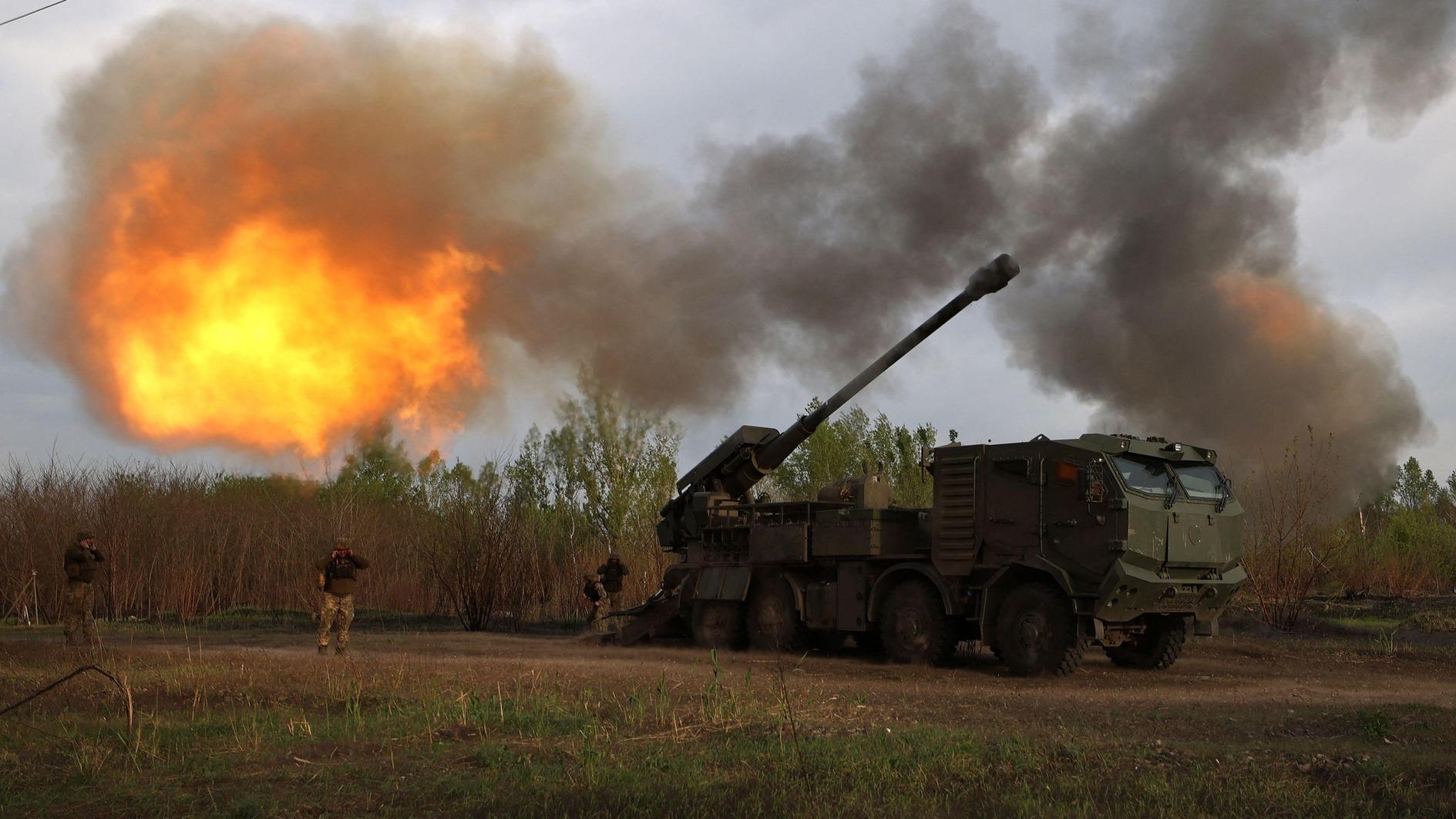Global economy in fragile recovery: IMF chief
ANKARA

AFP photo
International Monetary Fund chief Christine Lagarde said the world economy is recovering but fragile mainly due to lower productivity rates in a business conference on the sidelines of the G-20 finance ministers’ meeting in the Turkish capital city of Ankara.“The common point across the IMF members has been a fragile recovery trend, which is distributed unequally. We have seen more recovery signals in the developed countries, although at lower-than-desired levels,” she said, as quoted by Anadolu Agency.
The productivity levels are low across the world, affecting the quality of global GDP growth, Lagarde said.
She also stressed the importance of investment in infrastructure, quoting IMF research that investing 1 percent of GDP in infrastructure in advanced economies increased output by 0.4 percent the same year and by 1.5 percent after four years.
Access to finance remains a major obstacle to companies in emerging markets, she noted.
“These companies do not have necessarily access to collateral, to finance with banks. This makes bank financing challenging,” she said.
Alternative sources of finance should be made available so that these companies can grow, Lagarde said.
Labor productivity should also improve in emerging markets with the implementation of structural reforms, as this also a major obstacle to growth, Lagarde added.
The U.S. Federal Reserve is coming under pressure from emerging markets not to raise rates too soon as turmoil in China threatens global growth, but the G-20 will not publicly call for any delay, delegates meeting in Turkey said on Sept. 4, as reported by Reuters.
Finance ministers and central bankers from the Group of 20 leading economies were pressing for more on China’s plans to tackle its slowdown, delegates at the meeting in Ankara said. Emerging market economies are concerned that a U.S. rate hike on top of the Chinese turmoil would pile on extra pressure, they said.
‘How to get growth going again’
“The focus is going to be on how to deal with the instability and how to get growth going again,” Canadian Finance Minister Joe Oliver told Reuters.
But the G-20 is unlikely to come up with any concrete new measures designed to address the spillover from instability in the world’s second-largest economy or to call directly on Beijing to address structural issues such as rising bad debts.
Nor is it likely to pressure the Fed to delay its expected rate hikes, despite unease in some emerging markets that such moves could cause capital outflows and currency volatility.
“We cannot live all the time on easy money,” Luxembourg Finance Minister Pierre Gramegna, whose country holds the rotating presidency of the European Union, told Reuters.
“This G-20 comes at a very good time because it gives the Fed an opportunity to gauge all the elements at stake,” he said. “One has to be realistic that at one point in time the curve of interest rates will have to change.”
A push by emerging market countries to characterize possible rate hikes in developed nations as a serious risk for the global economy was rejected by drafters of the G-20 communique, a source from the Russian delegation said.
“Some emerging market countries wanted to fix a position,” the source told reporters, as quoted by Reuters, when asked whether the Fed’s expected rate hike would be mentioned in the communique.
“In one of the wild formulations it said this was the biggest threat to the world economy. This was killed immediately and forever,” the source said, but added the text would mention monetary policy changes without referring to specific countries.
Another G-20 source said the wording would probably not go beyond a general caution to central banks to bear in mind the consequences of policy shifts.
“There will be no open demand of the Fed to act,” the source told Reuters.
One concrete move being examined at the Ankara meetings is a proposal from a group of financial stability experts to adopt a two-stage approach for introducing Total Loss Absorption Capacity (TLAC) buffers for big banks, a G-20 source said.
















